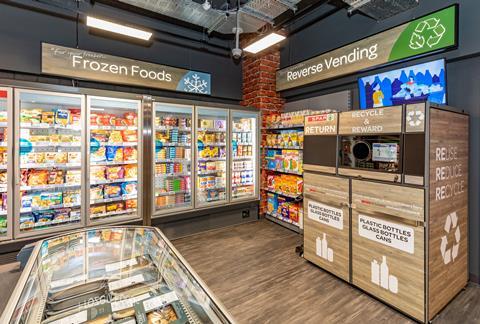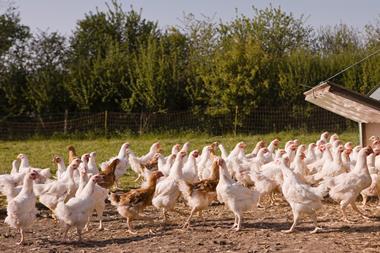
The government is set to shelve its controversial plans for extended producer responsibility within days, with a damning report by audit experts the final straw for the botched scheme, sources claim.
The Grocer understands the 2024 start for EPR will be put back by at least a year. Ministers have agreed to go “back to the drawing board” amid concerns it will cost the industry more than £2bn a year, while failing to solve the problems facing the recycling system.
Meanwhile, plans for a launch of a deposit return scheme are also said to be on the verge of being shelved, with the already delayed October 2025 date for full implementation to instead be the start of a more limited pilot scheme. Industry sources are considering calling for the plans to be dropped completely.
A report by the National Audit Office, published last week, delivered what one source described as a “systematic dismantling” of Defra’s environmental strategy including its plans to roll out EPR from next year.
In November, The Grocer revealed environment secretary Thérèse Coffey had launched crisis talks with industry to try to save the scheme, and in March we revealed supermarket and supplier bosses had written to her urging for the launch to be delayed, claiming it represented a multibillion-pound “blank cheque”.
The NAO report agrees, saying Defra’s lack of a clear timeframe, costings and clearly set out waste ambitions have destroyed business confidence and left local authorities facing mass confusion.
“Businesses we spoke to told us that lack of clarity about Defra’s plans has discouraged them from investing in changes to products and processes in advance of the scheme coming into force,” found the report.
“Local authorities do not yet know how payments through the extended producer responsibility scheme will affect their overall funding. This could mean that many local authorities start the process of procuring new lorries and bins at the same time, once the funding implications are clear.
“This could put pressure on supply chains and mean it takes longer than Defra expects for all local authorities to collect waste as required.”
The recent collapse of Scotland’s plans for the UK’s first DRS scheme, which had been expected to act as a UK pilot, had left “inherent uncertainties” about the benefits, the NAO said.
The report called on Defra to look again at the evidence for DRS and consider whether instead of a national rollout it would be better to launch a pilot scheme to gather evidence about its effectiveness.
One senior industry source said the government was now expected to pass statutory instruments before the break-up of parliament later this month, which would delay the implementation of EPR.
“The message has finally got through now that they can’t simply push on blindly despite the huge uncertainty facing businesses,” the source said.
“The industry wants EPR. It’s not that we don’t want it to go ahead, but we want a system that is well designed and properly thought out and that includes an achievable timescale.”
Such is industry disquiet at the disastrous attempted rollout of DRS in Scotland that major companies may call for the scheme to be canned completely rather than putting their backing behind a pilot, The Grocer has learnt.
“There are conversations taking place about whether we could get behind a pilot,” says a source. “Scotland could have effectively been a pilot but of course that didn’t happen. One thing is certain: the industry will need reassurances that if DRS is to go ahead there is clarification of an aligned policy across the UK.”
With Scottish ministers determined to include glass in scope of DRS, and up in arms over the idea of Westminster setting the rules for elements such as maximum deposits, the chances of agreement appear slim.
“The NAO report clearly shows that government does not have the plan in place to implement a key waste programme which would improve recycling in the UK,” said BRC director of food and sustainability Andrew Opie.
“EPR has the potential to significantly impact recycling rates, but the implementation is projected to increase the cost of food by over £2bn.
“The key is to deliver value for consumers, which is why retailers have been calling for a pause to review the scheme.
“We need to see better co-ordination of waste policies. Now is the time for government to work with industry to ensure that policy proposals, including EPR and the deposit return scheme, lead to better outcomes for both the environment and consumers.”
A Defra spokesman said: “Work is ongoing to deliver our extended producer responsibility scheme and we’re continuing to engage closely with manufacturers, retailers, and packaging companies on the design of the scheme.
“We will continue to work with industry as we finalise plans to ensure that the schemes will deliver our environmental goals.”



















No comments yet